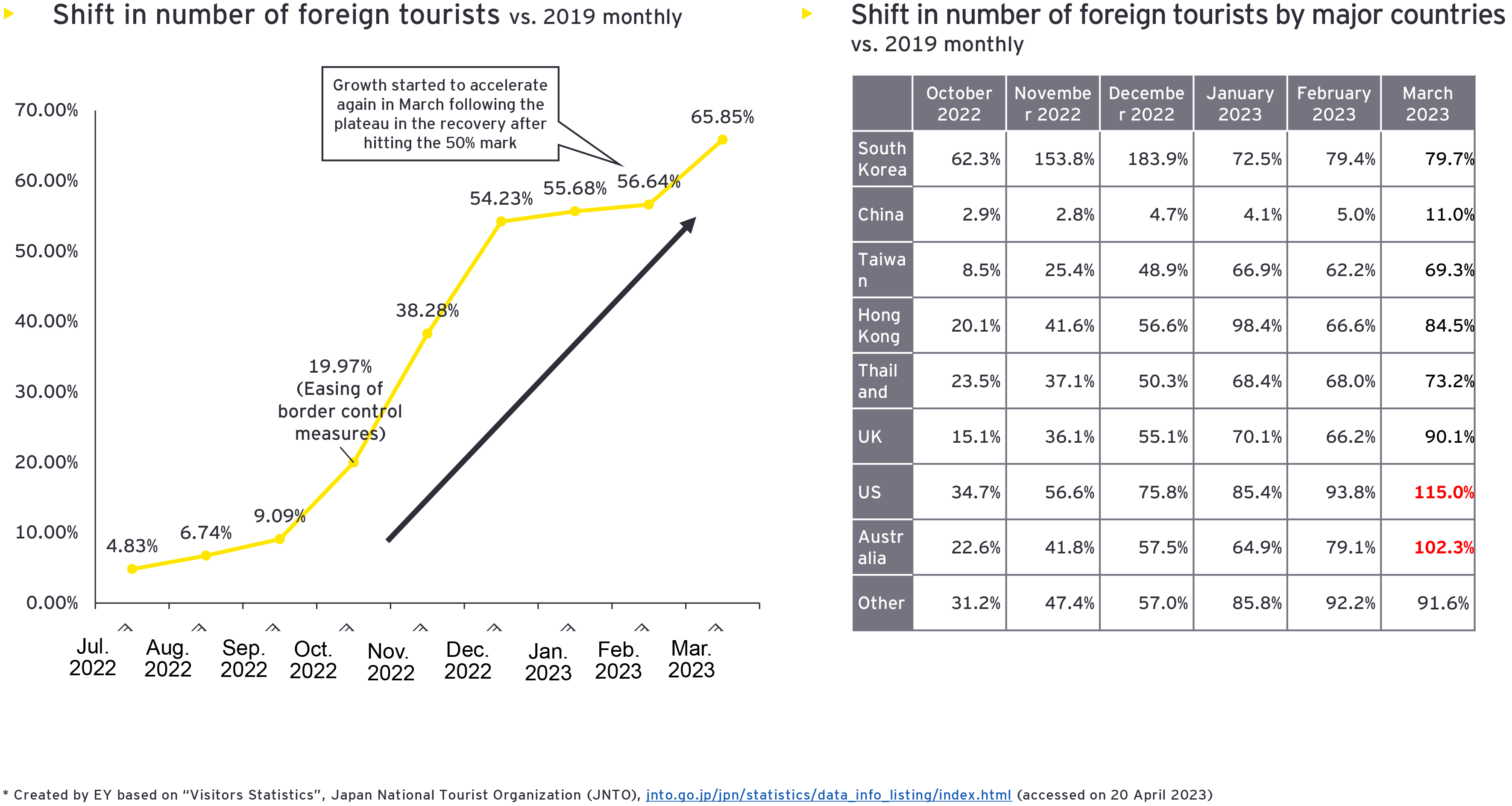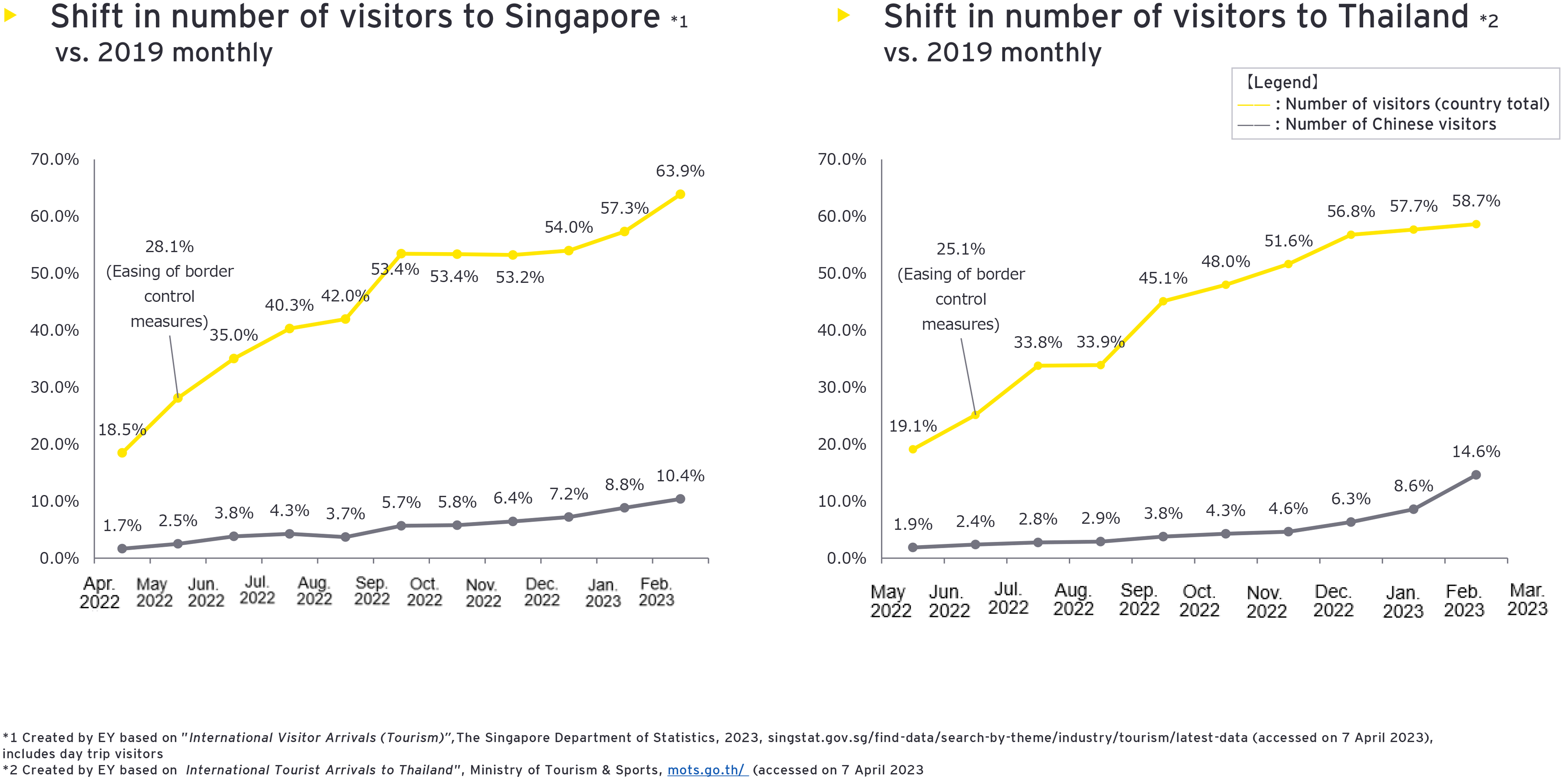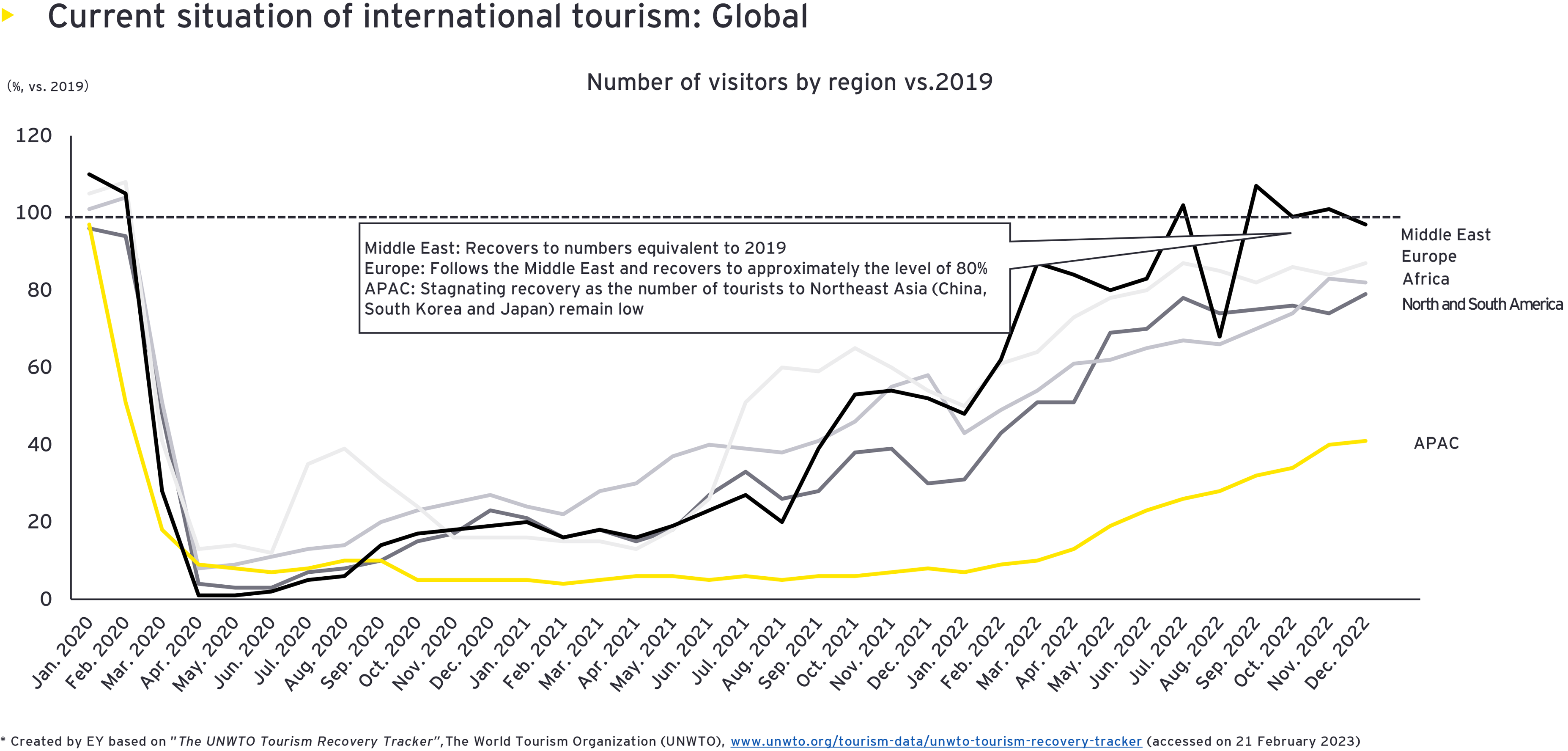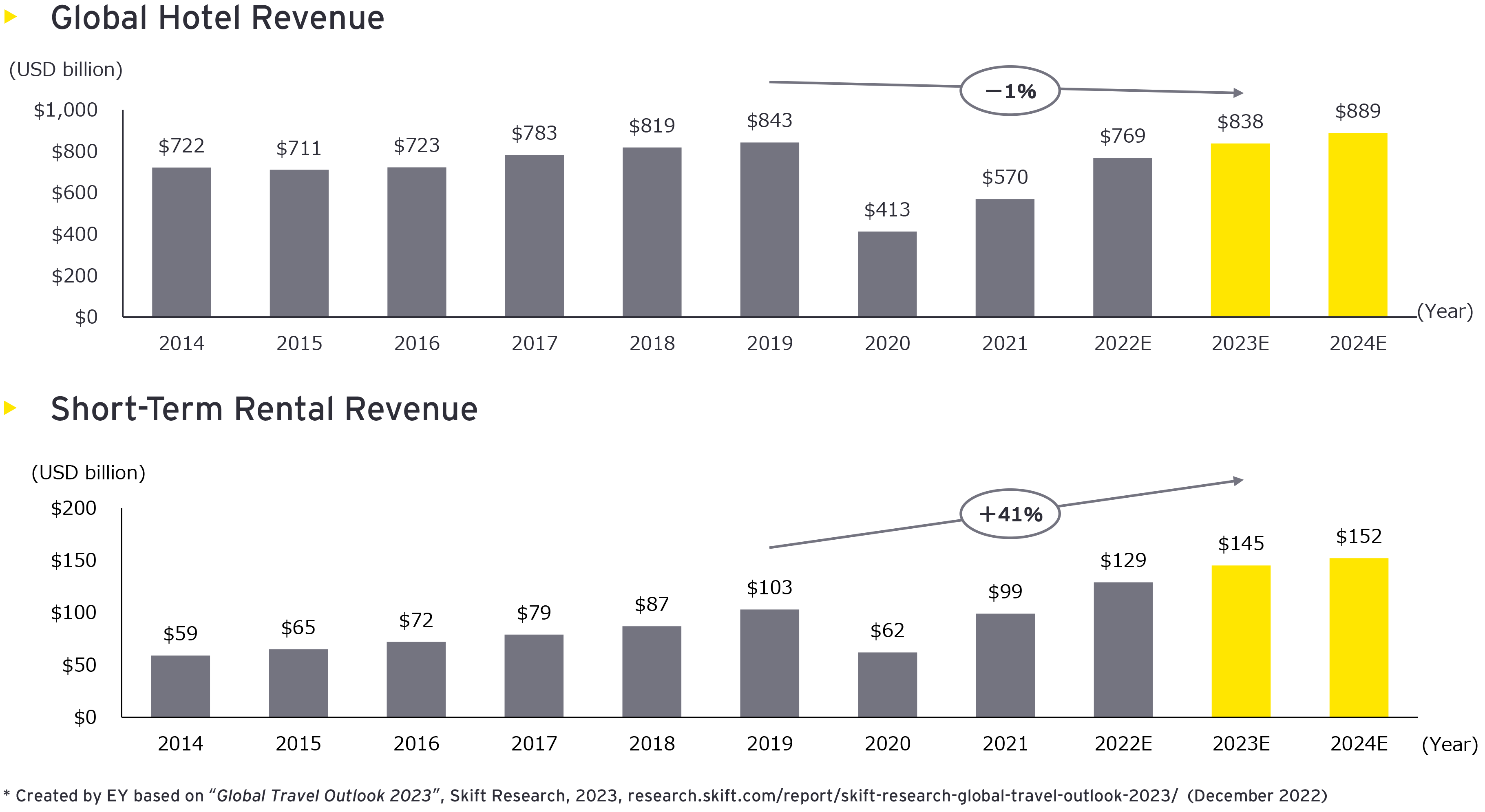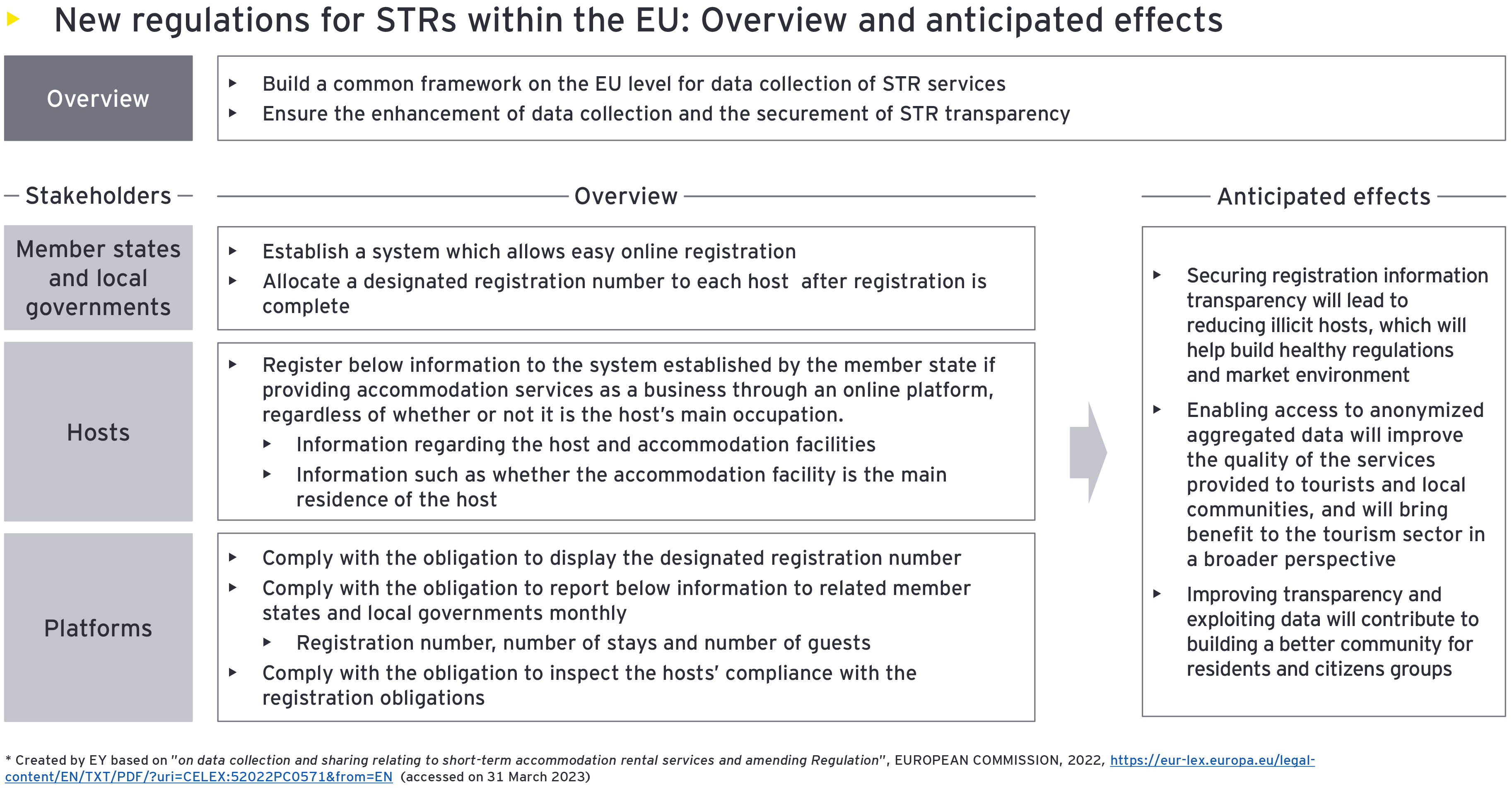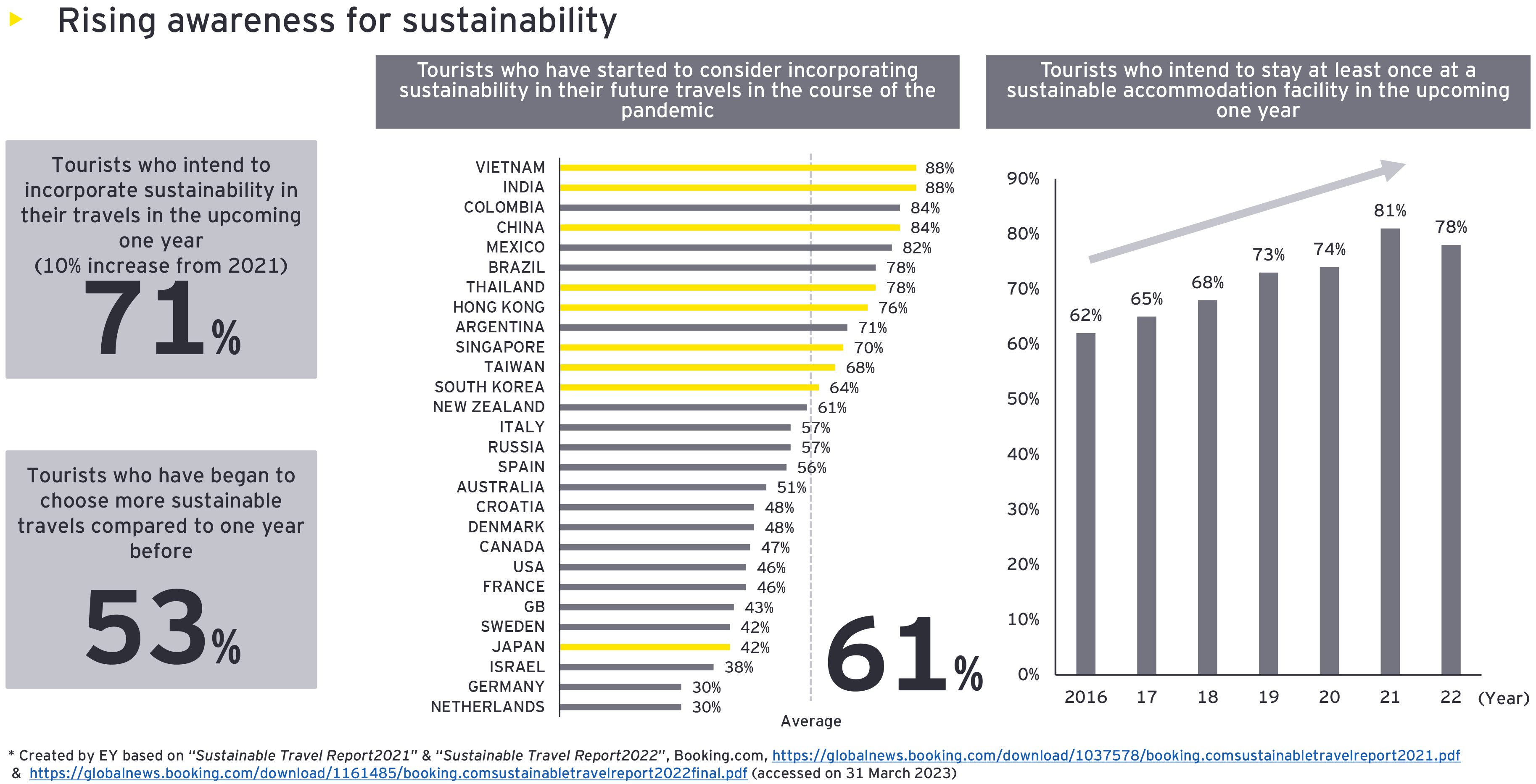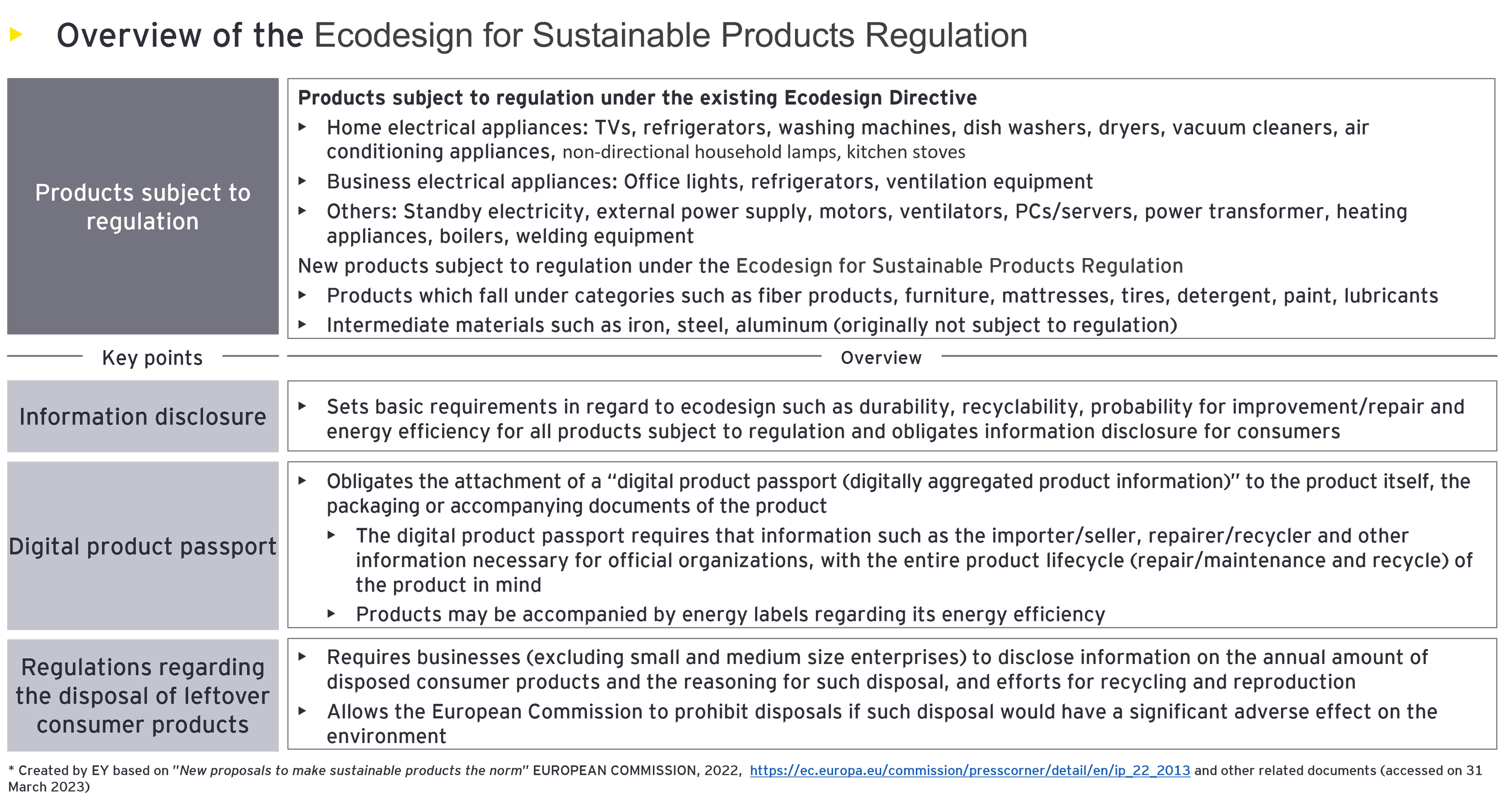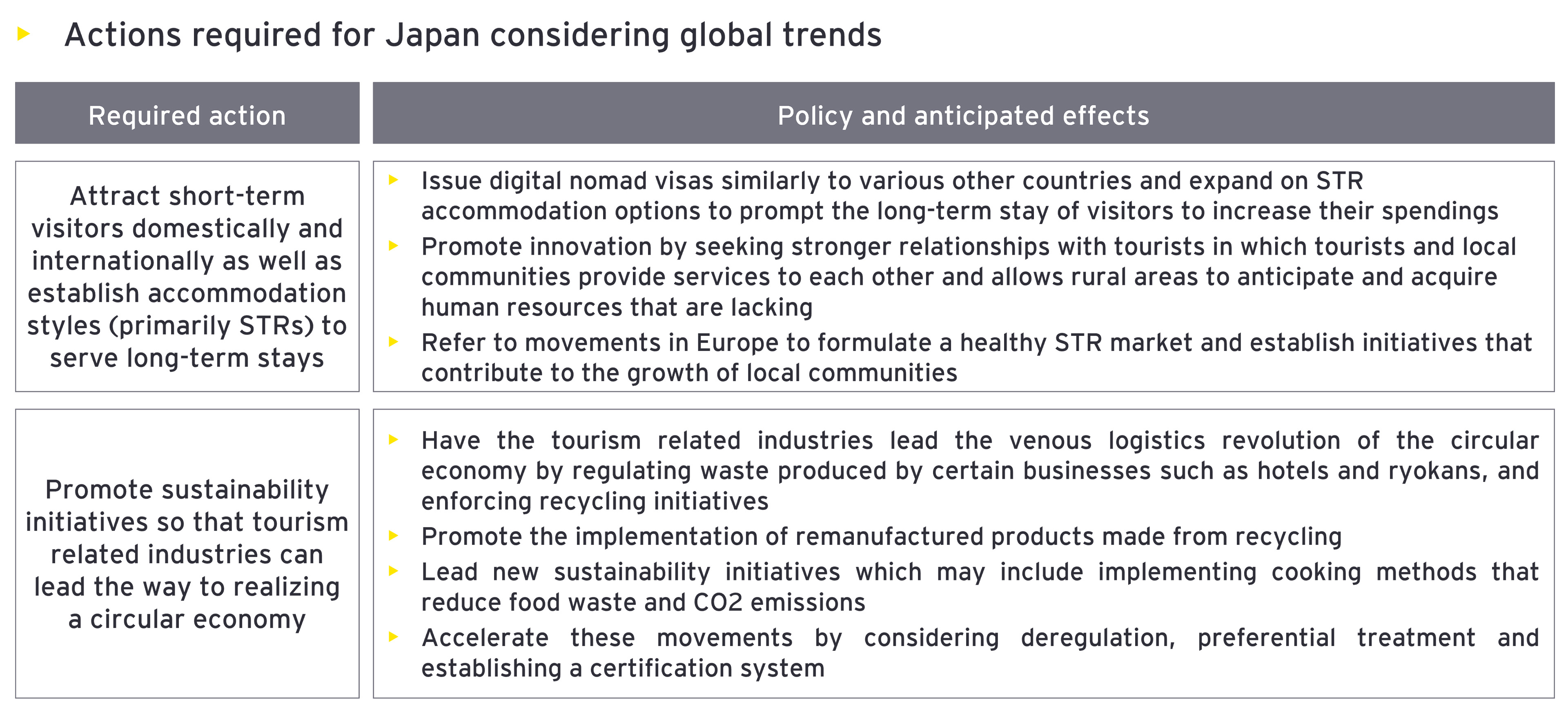The world has welcomed this trend and countries have actively adopted initiatives for issuing visas to digital nomads (people who leverage IT technology to travel domestically and internationally while working).2 While conditions may slightly vary depending on the country, digital nomads who have acquired a visa (digital nomad visa) are able to reside in the visa-issuing country for a set period of time and work remotely. “Future of Tourism 2022 - 2031”3 notes that the relationship of tourists and tourism-related businesses will grow closer in the future, shifting towards a model wherein both parties offer their own expertise in a mutual exchange of services. Indeed, this new breed of initiatives likely holds the potential for accelerating the future development of how these parties interact with each other.
As digital nomads reside in a country for the mid- to long-term, it is easy to see why invigorating and enhancing the STR market is imperative alongside these initiatives. In addition, increasing interactions with digital nomads in local areas mean rural communities that are confronted with a lack of specialized human resources can acquire the world’s most innovative individuals, which could further open pathways to revitalizing their communities.
At the same time, a byproduct of STRs is the issue of conflicts between their users and the residents of local communities - a topic which has also sparked debates in Japan.
In Japan, businesses can provide accommodation services by submitting a notification based on the “Private Lodging Business Act” which came into effect in 2018 (private lodging), without obtaining a permit as required by the “Hotel Business Act”. As of March 2023, 18,760 private lodging businesses are permitted to provide accommodation services4. With that said, the conflicts between users of private lodgings and residents of local communities have become a major issue, and local governments have taken steps to prohibit these businesses by enacting ordinances and taking other measures. This trend is not only applicable to Japan, but has also been identified as a common issue occurring around the world, and all involved parties are currently working in various ways towards establishing a healthy market.
In Europe, as an example, a quarter of total accommodations in 2019 were provided by STRs, with 1.4 million customers and 512 million stays recorded5. However, in contrast to the booming market, tourist destinations are facing adverse effects such as overtourism and rising housing and commodity prices, all of which have accelerated the establishment of regulations for data collection and sharing in an effort to ensure the transparency of the STR market for healthy market growth. In March 2023, the EU regulatory authorities reached an agreement on a common approach to collect and share data from STR platforms such as Booking.com, Airbnb, Tripadvisor and Vrbo. This approach aims to ensure the transparency of the STR market by building a singular system which allows each EU member state to share their data and allocate a designated registration number to each host, and have the platforms share data with authorities such as the host’s registration number and number of stays. A transparent

